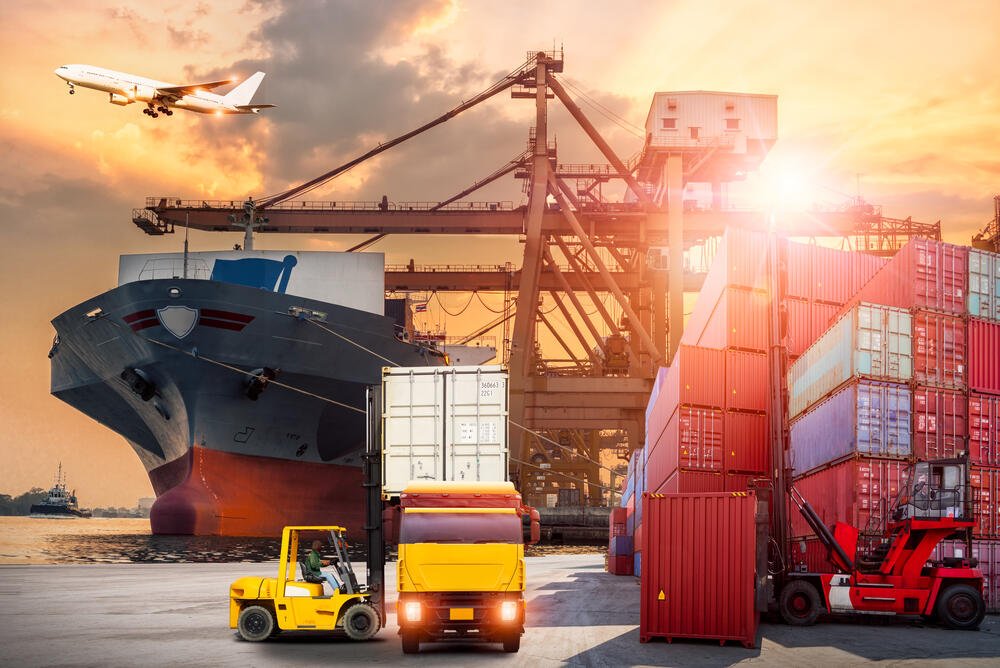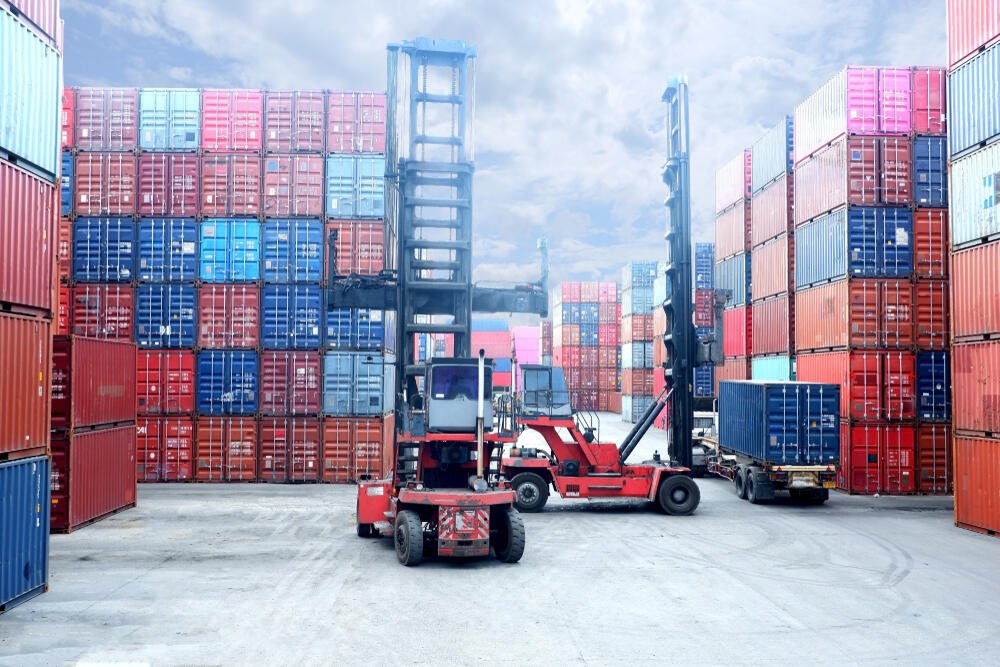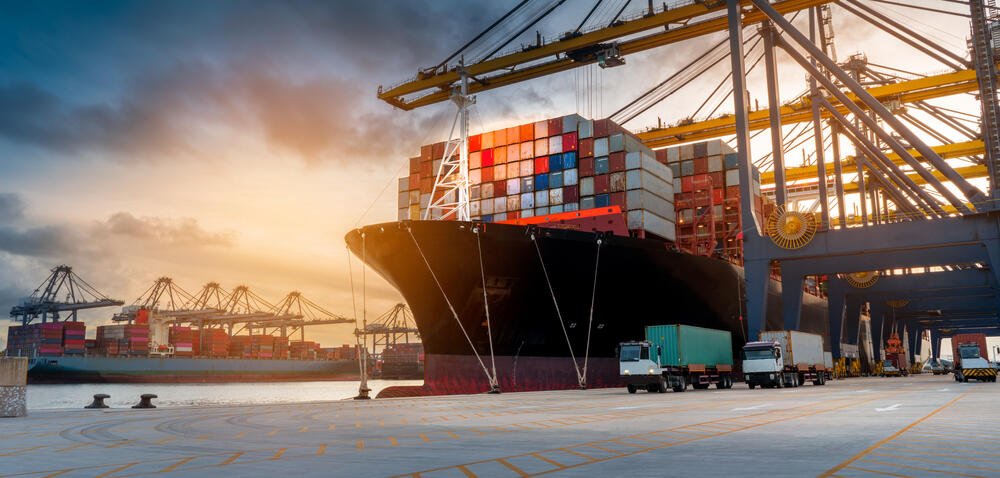
The shipping industry is constantly evolving, undergoing digital transformation, and adapting to new market conditions.
The global shipping industry has grown and matured over the past few centuries, especially after a period of rapid expansion in the early 19th century.
The demand for faster and more efficient shipping services has increased the pressure on companies operating in this sector to implement new technologies, optimize supply chains, and develop new business models.
This blog post will discuss some of the most critical challenges affecting the shipping industry. Continue reading to learn more.
The Growth of eCommerce and Online Retail
The fast expansion of e-commerce and online shopping has generated new delivery service expectations. For instance, more cargo is transported from Asia to the United States.
This comes from the growth of Asian e-commerce, while the growth of e-commerce in the US has been slower.
People are increasingly making online purchases, increasing the demand for transportation options.
As a result, shipping companies have seen a rise in demand for maritime and air transport by sea and air.
The proliferation of online shopping has resulted in a rise in the total volume of goods that must be shipped. This has placed stress on existing ports, as they have struggled to meet demand.

Changes in Consumer Behavior
One of the biggest challenges facing the cargo industry today is the change in consumer behavior.
Consumers have become more demanding and, as a result, have higher expectations regarding service quality.
This has resulted in higher shipping costs, longer delivery times, and higher chances of delays.
Investments in better technology, information management systems and more efficient supply chains can help carriers address these challenges and improve the overall experience for their customers.
Another notable change in consumer behavior is the shift towards e-commerce.
Due to the rise in online shopping, there has been a spike in need for air freight delivery services.
As a result, the air cargo industry is expected to increase by 4.9% annually until 2023.
Moreover, many consumers prefer to receive their goods as fast as possible, which has increased the demand for expedited shipping services.
Automation in Shipping Cargo
Automation has become a critical component of modern cargo handling systems. It has significantly reduced the costs of labor-intensive operations, improved the flow of goods and services, and increased the efficiency of supply chains.
In addition, automation is increasingly being used to improve the efficiency of ports. This has reduced emissions and less noise, which is good for the local environment.
As a result, automation has favorably impacted the shipping business, and this trend will likely continue.
However, automation also challenges and poses certain risks to the shipping industry.
First and foremost, automation can pose a risk to human life. For example, many accidents in industries such as aviation and mining are a result of automation. This can also be true for cargo shipping, as accidents may occur if human oversight is neglected.
Furthermore, automation also poses a risk to society. This is because it may replace human labor, which can cause unemployment.
Supply Chain Transparency
Another challenge facing the cargo industry is supply chain transparency. The shipping industry faces low transparency in the supply chain. Shipping goods internationally is often associated with high costs and long transit times.
The lack of visibility throughout the supply chain is partly to blame. In addition, poor communication between stakeholders and difficulties in tracking shipments can significantly delay the delivery of goods.
This is especially true for maritime transport. There have been many attempts to improve the transparency of supply chains.
One initiative is the adoption of Blockchain technology in the shipping industry. An open and distributed ledger makes secure and transparent data exchange possible through blockchain technology.
It also allows parties to track goods in real time, which makes it possible to trace products back to their source. This aims to reduce the risk of fraud, improve trust between stakeholders, and reduce the time needed for customs clearance.

Climate Change Awareness
The shipping industry emits significant CO2, contributing to global warming.
About 3% of the world's total CO2 emissions can be attributed to the shipping industry.
To give some context, international aviation accounts for 2% of global carbon dioxide emissions. It is estimated that if nothing is done about this, the CO2 emissions from shipping will increase by 7% by 2050.
However, the shipping industry can reduce its CO2 emissions in several ways.
One approach is to use alternative energy sources, such as solar and wind power investments. Optimizing CO2 emissions is another way to lower emissions. This can be done by optimizing the engine, improving the design of ships, and implementing new technologies.
Security Issues in the Cargo Industry
As the world grows more interdependent, so has international commerce.
However, this exposes the shipping industry to several security threats.
Cyber attacks, piracy, and terrorism are just some dangers the shipping industry faces. This can lead to major revenue losses and adversely impact shipping companies' reputations.
The best way to address these challenges is to invest in security measures. This involves investing in the most advanced security technology, such as anti-virus and firewall software.
Furthermore, training and development are required to assist employees in recognizing and responding to potential threats.
Lack of Transparency in the Market
Government agencies around the world heavily regulate the shipping industry. Unfortunately, this has resulted in less transparency and more inefficiency in the market.
Shipping companies must comply with strict regulations related to the transport of goods, onboard working conditions, and environmental protection. This imposes high industry costs, leading to increased shipping prices for businesses.
Moreover, many government agencies have poor transparency levels, making it difficult for companies to get information about regulatory changes.
Therefore, many ship owners have reduced their services due to the lack of clarity in the market, leading to a shortage of specific types of vessels. This reduces the number of ships available to companies that need to ship goods.
The result has been increased congestion at ports, higher shipping prices, and longer wait times.
The Shortage of Skilled Labor in the Industry
The lack of skilled labor is a general challenge faced across all industries, but it is a particularly pressing issue for the shipping industry. This is because it is a sector that heavily relies on manual labor, meaning that it is difficult to replace human workers with machines.
The shipping industry is also very complex, with many different sub-disciplines and skill sets that workers must master.
The sector is also geographically dispersed, meaning it is even harder to attract talent from countries with fewer educational opportunities in maritime studies.
While finding workers with the necessary skills is possible, there is a significant shortage in the number of people with the right skill set.
This is further compounded by the fact that the industry is cyclical and experiencing a growth spurt, meaning that companies face greater challenges in sourcing the necessary skill sets for their operations.

Heavy Regulation and Compliance Requirements
The shipping industry is heavily regulated, which creates many challenges for companies. This can cause delays, as they often have to wait for licenses to be approved, which can significantly impact their operations.
Moreover, shipping companies have to deal with high costs, as they need to hire specialized staff to manage compliance and increase their budgets to cover the cost of equipment, software, and certifications. This may lower their earnings and make it more challenging for them to compete.
In addition to managing compliance, the shipping industry must comply with various data protection, cybersecurity, and privacy laws.
Key Takeaway
As the shipping industry continues to grow and evolve, companies operating in this sector will face various challenges.
However, the industry is also a highly attractive sector for investors, which is expected to drive future growth and transformation.
Nowadays, companies operating in the cargo industry can no longer rely on their past success; they need to constantly evolve, innovate, and adapt to new market conditions.
Although the increasing demand for cargo shipping makes this industry face many challenges in terms of quality services, at A1 Auto Transport, with 33 years of experience in the market, we guarantee express service and on-time delivery.
For further information or any other concerns, don't hesitate to leave your request. We're happy to assist you in every step of the cargo shipping process.






 Share on Facebook
Share on Facebook Share on LinkedIn
Share on LinkedIn Share on Twitter
Share on Twitter




 Google
Google  Instagram
Instagram  Trustpilot
Trustpilot 



